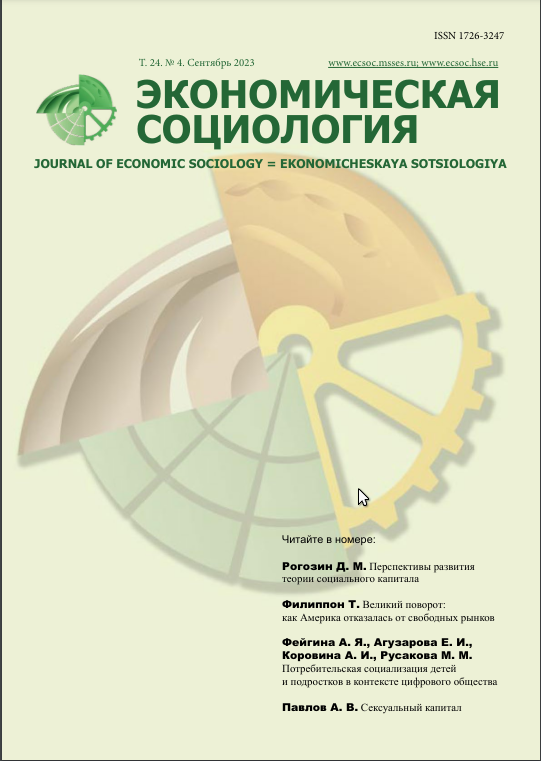The Great Reversal. How America Gave Up on Free Markets (excerpt)
Abstract
The book “The Great Reversal: How America Gave Up on Free Markets” offers a fresh perspective on competition in the USA in the first decades of the 21st century. Based on the latest research findings and international comparisons, the author demonstrates that competition has been declining in the US domestic markets. The lack of competition is attributed to political choices resulting from the lobbying and financing of political campaigns by large corporations.
These choices have led to the growth of market entry barriers and regulations that protect major market players, weaken antimonopoly regulation, and hinder the growth of small and medium-sized firms. The absence of competition also results in reduced wages, investments, and economic growth rates, along with increased inequality. The Journal of Economic Sociology publishes the first chapter titled “Why Economists Adore Competition... and Why We Must Also Embrace It,” in which the author discusses the arguments in favor of competition that exist in economic theory. Additionally, the author reviews the potential positive and negative consequences of increasing competition. This book is intended for students, lecturers, economists, and anyone interested in economic issues encountered by certain markets and antimonopoly regulation.













